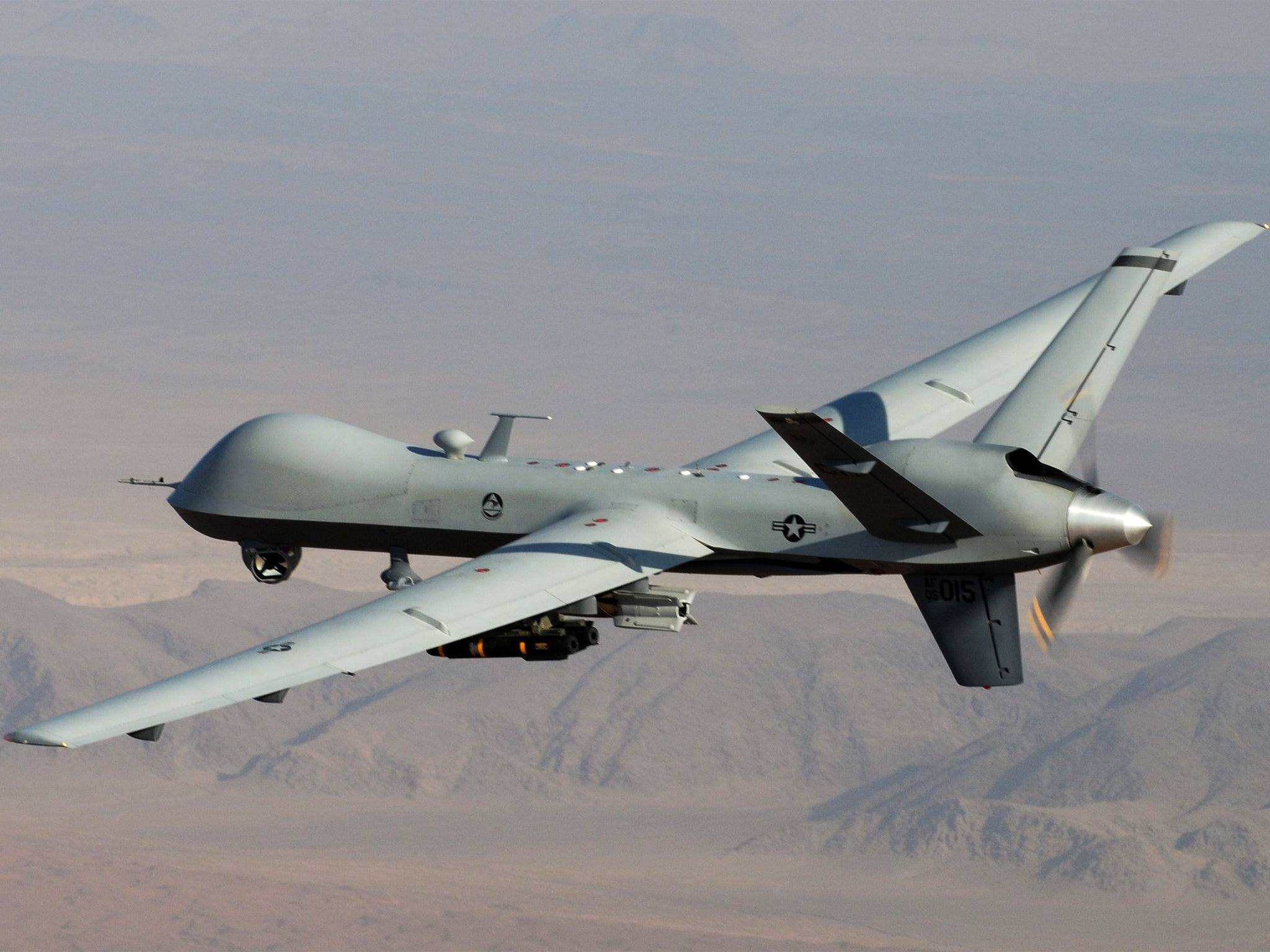No excuse for dodging questions about use of military drones
The use of drones operated from thousands of miles away using unverifiable intelligence gives rise to intense moral questions that have only barely begun to be considered

Your support helps us to tell the story
From reproductive rights to climate change to Big Tech, The Independent is on the ground when the story is developing. Whether it's investigating the financials of Elon Musk's pro-Trump PAC or producing our latest documentary, 'The A Word', which shines a light on the American women fighting for reproductive rights, we know how important it is to parse out the facts from the messaging.
At such a critical moment in US history, we need reporters on the ground. Your donation allows us to keep sending journalists to speak to both sides of the story.
The Independent is trusted by Americans across the entire political spectrum. And unlike many other quality news outlets, we choose not to lock Americans out of our reporting and analysis with paywalls. We believe quality journalism should be available to everyone, paid for by those who can afford it.
Your support makes all the difference.How not to answer questions must be one of the earliest lessons for trainee politicians. The first method for avoiding questions that is taught at politicians school must be, “We are not going to be giving a running commentary”, which the Prime Minister favours for deflecting questions about Brexit.
The second method is probably: “That is a hypothetical question.” This was the defence deployed by the Government in its response to the Joint Committee on Human Rights, made up of representatives from both Houses of Parliament, which wanted to know what the Government’s policy was on the use of lethal force outside armed conflict.
The committee, chaired by Labour’s former deputy leader Harriet Harman, was concerned about the law on the use of drones. It asked a number of questions about the killing of British citizens who were fighting as Isis jihadis in Syria in August last year, and eventually pronounced itself satisfied with the Government’s answers.
In today’s report, however, the committee expresses its disappointment that the Government failed to clarify what its position would be on drone killings in areas that are not conflict zones. “Disappointment” is diplomatic language: a better way to describe the Government’s position might be that it is alarming and deeply unsatisfactory.
This is an urgent question. The convention that the House of Commons must authorise military action has a number of grey areas that allow democratic oversight to be evaded. Under David Cameron, the Government made it clear that the convention did not apply to special forces, military advisers or drones. The growing importance of drones in today’s warfare means that the convention needs to be updated.
The killings in Syria demonstrated the extent to which technology has run ahead of the law. The use of drones operated from thousands of miles away using unverifiable intelligence gives rise to intense moral questions that have only barely begun to be considered. In the Syria case, the Government’s argument was that the killings were justified in international law because of intelligence that the jihadis were planning terrorist attacks in Britain. This seemed to The Independent a dangerously thin argument.
And because it is such a thin argument, it is all the more important that the Government should answer the committee’s question about the – hypothetical but all too possible – use of drones against terrorist targets in places that are not war zones.
Ms Harman is absolutely right to say: “Parliament is entitled to expect an explanation of the Government’s view of the legal justification for such a use of force before it happens, rather than wait until it does.” This is not a hypothetical question in the sense of a question about something that is unlikely to happen; the use of drones has been standard US military practice in Pakistan for some time. British military forces have the technology too, and the only constraints on the use of it are political and legal.
The Government has denied that British forces have used drones in Libya, but this is an imminent rather than a hypothetical question. The British people, through their representatives in Parliament, are entitled to an answer on this important matter of moral principle.
Join our commenting forum
Join thought-provoking conversations, follow other Independent readers and see their replies
Comments